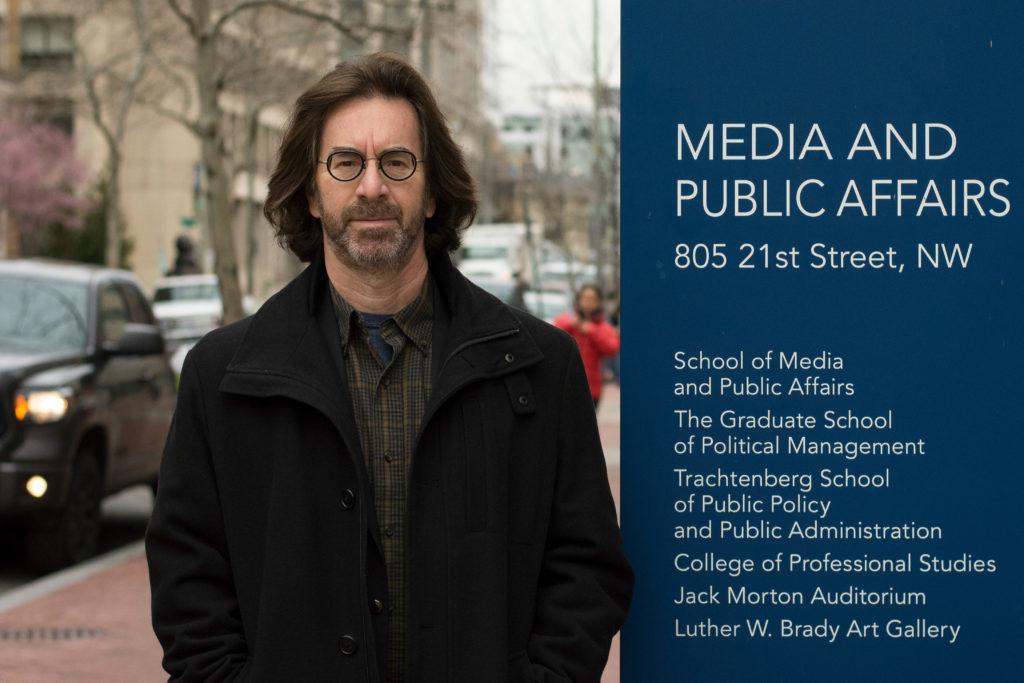Updated: March 26, 2018 at 1:35 p.m.
The School of Media and Public Affairs wants to take its students reporting outside the D.C. “bubble.”
SMPA partnered with West Virginia University’s Reed College of Media to launch a new environmental journalism program that will allow students from both schools to chronicle the economic and environmental impact of a natural gas pipeline in West Virginia this summer. Faculty and officials involved in the program said the collaboration will push students to report on an important local issue in a region that is often unfamiliar to students.
The program, which will run from May 14 to June 8, will feature three students from both schools conducting a multimedia project on the effects of the Atlantic Coast Pipeline – a 60-mile-long pipeline carrying natural gas from West Virginia to North Carolina. Although the pipeline has been opposed by Native American groups whose land will be affected, a permit to begin the project was approved earlier this year.
“Students can learn on the ground a bit about field reporting, but also reporting on communities that they’re not used to.”
SMPA Director Frank Sesno said students from both schools will first report on the political and policy issues surrounding the natural gas pipeline by speaking with experts, policymakers and advocates in D.C. That work will then inform their field reporting in West Virginia, where students will meet with business leaders, policymakers and communities near the pipeline.
“Too much of what happens in D.C. is disconnected from the realities experienced by people living in the rest of the nation,” he said in an email. “This program gets students out of the D.C. bubble in a direct, powerful and personal way to see what is actually happening outside of the nation’s capital.”
University spokesman Jason Shevrin said the program originated with SMPA’s advisory board – a volunteer group of alumni and media professionals focused on the school’s growth and development – and students wanting to learn how to cover real world issues in the current turbulent political climate.
“Our partnership provides a cross-university exchange for students at GW and WVU who will work together and approach the topic from two geographically and culturally different perspectives,” he said.
The project was funded by a $40,000 donation from Scott Widmeyer, the chair of SMPA’s National Council, Shevrin said.
Jonathan Ebinger, an SMPA lecturer and director of the GW portion of the program, said the project is designed to be similar to an intensive internship because it requires venturing out of the classroom to conduct on-the-ground reporting.
Students will be responsible for collectively creating about six news video packages related to research they will conduct about the impact the natural gas industry has on the local job market and economy and how the pipeline construction will affect water quality and environmental and safety deregulation in the U.S.
The news packages will be spread across media outlets and environmental journalism platforms, including 100 Days in Appalachia – a media project started by WVU’s Reed College of Media – SMPA’s PlanetForward.org, West Virginia Public Broadcasting and the West Virginia Press Association.
“Students can learn on the ground a bit about field reporting, but also reporting on communities that they’re not used to,” Ebinger said.
Prior to interviewing D.C. experts and officials, students will first spend a week on West Virginia University’s campus in May to develop their stories. Participants will receive a stipend for food, transportation and housing while in West Virginia and on-campus housing at GW if needed. Officials did not specify the amount of the stipend.
The program, which is not for credit, was advertised in the SMPA newsletter beginning in February. Applicants submitted a 500-word essay centered on their interest in environmental journalism and any relevant reporting and production skills before the March 1 deadline. Three SMPA applicants were already selected to participate in the program, Ebinger said.
“Being in a place and immersing yourself in the story of the place are two different things.”
“This collaboration gives students the freedom to experiment with different mediums, tell underreported stories and to break down borders by covering stories from both D.C. and West Virginia,” he said.
He said those involved in the program will learn how to use text, audio and video to tell a compelling story and gain insight into how different journalism schools operate.
“Being in a place and immersing yourself in the story of the place are two different things,” he said. “We’re not going to be parachuting in and doing this story for a day or two.”
Emily Corio, a teaching associate professor at the Reed College of Media and a faculty adviser on the project, said students will gather audio and record 360-degree video to tell stories along the pipeline’s path.
“This project provides students with an incredible experiential learning opportunity in journalism and allows them to be innovative in their storytelling,” she said.
Liz Konneker contributed reporting.





